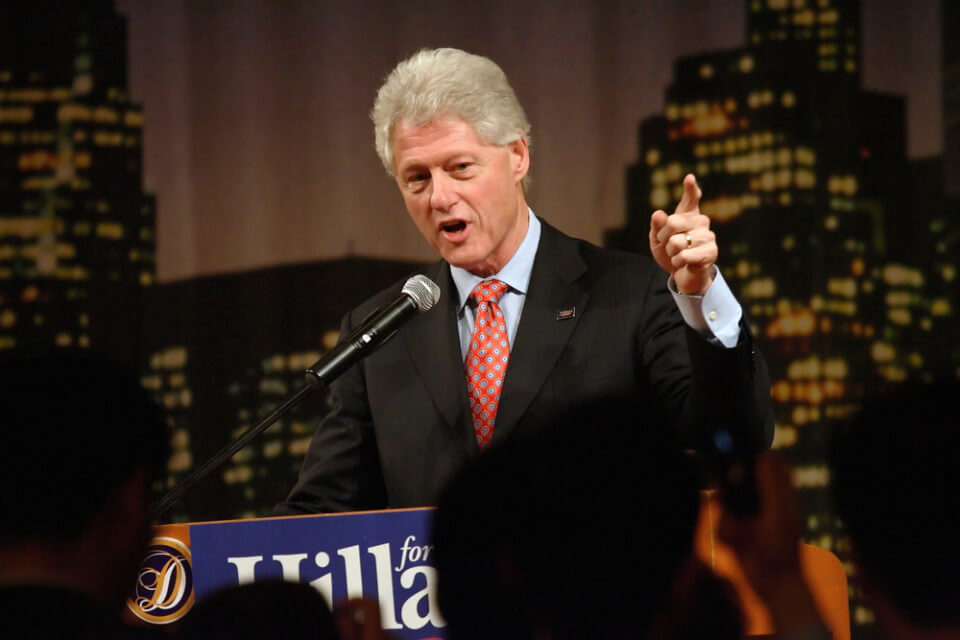Ricochet is the best place on the internet to discuss the issues of the day, either through commenting on posts or writing your own for our active and dynamic community in a fully moderated environment. In addition, the Ricochet Audio Network offers over 50 original podcasts with new episodes released every day.
 We Love the ’90s! Why Doesn’t the Left?
We Love the ’90s! Why Doesn’t the Left?
 Hey, the X-Files is coming back. Just another sign that we are in full “I love the ’90s!” mode. It’s not just Mulder and Scully. Monica Lewinsky just gave a TED speech. Republicans are again talking about the flat tax. (In the ’90s, even the Dems were talking up the flat tax.) Hollywood is finally making an Independence Day sequel. And there’s a Clinton running for president. I wrote about that last bit of nostalgia in my The Week column. I would say most Americans remember that decade with some fondness thanks to the booming economy. But as I note in the column, those on the left have a more nuanced view of Clintonomics:
Hey, the X-Files is coming back. Just another sign that we are in full “I love the ’90s!” mode. It’s not just Mulder and Scully. Monica Lewinsky just gave a TED speech. Republicans are again talking about the flat tax. (In the ’90s, even the Dems were talking up the flat tax.) Hollywood is finally making an Independence Day sequel. And there’s a Clinton running for president. I wrote about that last bit of nostalgia in my The Week column. I would say most Americans remember that decade with some fondness thanks to the booming economy. But as I note in the column, those on the left have a more nuanced view of Clintonomics:
In the progressive mind, Bill Clinton quickly ejected his “putting people first” spending agenda in favor of the Alan Greenspan-approved “bond market strategy” that focused on boosting growth by cutting the deficit. (During the Obama era, Republicans adopted the strategy and renamed it “cut to grow.”) “I hope you’re all aware we’re all Eisenhower Republicans,” Clinton fumed, as recounted in Bob Woodward’s The Agenda: Inside the Clinton White House. Not long after, Clinton’s economic council was praising the much-hated — well, at least by progressives — Reagan tax cuts: “It is undeniable that the sharp reduction in taxes in the early 1980s was a strong impetus to economic growth.” Eventually, Clinton declared that the “era of big government is over.” Not a red-letter day in Liberal Land.
Bill Clinton did raise top labor income tax rates, but he also cut them for investment taxes. And while median wages rose, so did inequality. From 1993 through 2000, the share of market income going to the top 1 percent rose to 16.5 percent from 12.8 percent, continuing a trend begun in the Reagan years. Perhaps the biggest black mark from a progressive perspective was Clinton’s signing of the bill that deregulated Wall Street. Some critics, such as Elizabeth Warren, blame that law for at least contributing to the financial crisis and subsequent recession.
Oh, and I could have tossed in NAFTA, too. You can count President Obama among those progressive critics who see the entire 1981 through 2008 period as time of stagnation and rising inequality, rather than a Long Boom. So it’s odd that the likely Democratic presidential nominee is Hillary Clinton, who will certainly point to the 1990s as proof of Democratic economic competence. More from me at The Week …
Published in Economics



Ah the 90s. Men were men, women were women, and we were allowed to say so without being without a screaming mob coming after you (unless you were Clarence Thomas, then you were fair game). Those were the days.
I don’t think this cognitive dissonance will bother Democratic voters. It is odd, though.
The left is in the process of ‘coming out of the closet’ about the fact that they really don’t like capitalism. They also for the most part don’t have a sincere interest in compromising or working with Republicans. Obama embodies this mentality. We’ll see if the Dems think they need to dial it back to 90’s levels of watered-down leftism, or go further down the path that Obama is walking.
These are inconsistencies that will be of no consequence, since Democratic voters are largely uninterested in actual economic policies.
They view politics as two teams competing, and the 90’s are proof of their team’s superiority. It would never occur to a Dem that Clinton’s cap gains tax cut, e.g., is evidence of the superiority of OUR IDEAS, since, well, precious few of them are even aware of it.
Reform Conservatives believe Bill Clinton is the best president since Eisenhower.